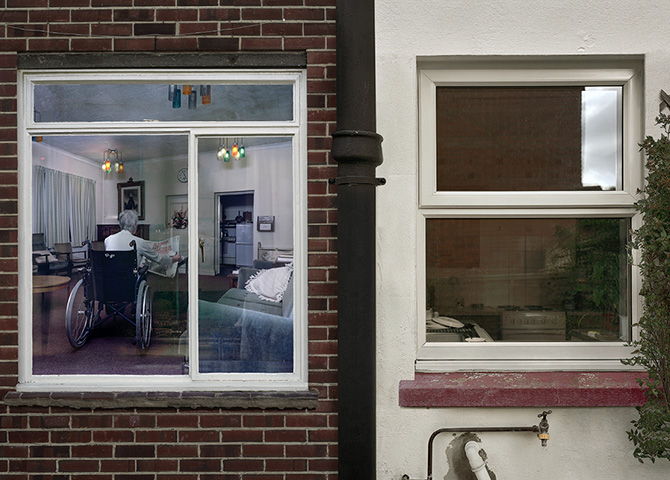Noelle Fields and Ling Xu, assistant professors in the School of Social Work, believe that social distancing requirements during the coronavirus pandemic place older adults at higher risks of physical and mental ailments.
The pair specializes in research and education related to older adults and their family caregivers.
“While social distancing may impact all of us, the negative effect may be greater for older adults who are already at risk for social isolation,” Dr. Fields says. “Some in gerontology and other social science fields are calling for ‘physical distancing’ rather than ‘social distancing.’”
There is strong evidence that for older adults, social isolation and loneliness negatively affect mortality and are associated with higher risks for a variety of physical and mental conditions such as high blood pressure, heart disease, obesity, a weakened immune system, anxiety, depression, cognitive decline, and more.
Dr. Xu recently received a grant from the National Institutes of Health to research ways of reducing the isolating stress experienced by families caring for loved ones with Alzheimer’s disease.
“Social workers directly engage clients,” she says. “Our work is empathic in nature, so we know the perspective of our clients and can take the initiative and advocate for them. We do not propose new theoretical solutions, we propose action models like intervention or policy.”
While social isolation is easily recognized in older adults, it’s becoming more common across one’s lifespan, says Kathryn Daniel, associate professor and director of the Adult Gerontology Nurse Practitioner program.
In addition, there are other marginalized groups at risk for detrimental isolation, including prisoners, immigrants, and other overlooked populations. Faculty members in UTA’s College of Nursing and Health Innovation expose students to other cultures and points of view to instill empathy and help them recognize the warning signs of social isolation.
“To put it simply, we are not meant to be isolated,” Dr. Daniel says. “Social networks are imperative in a healthy society. When it comes to tackling the effects of social isolation as a modern-day challenge, a tighter, more cohesive society with greater diversity of age, race, and culture is a win for everyone.”



